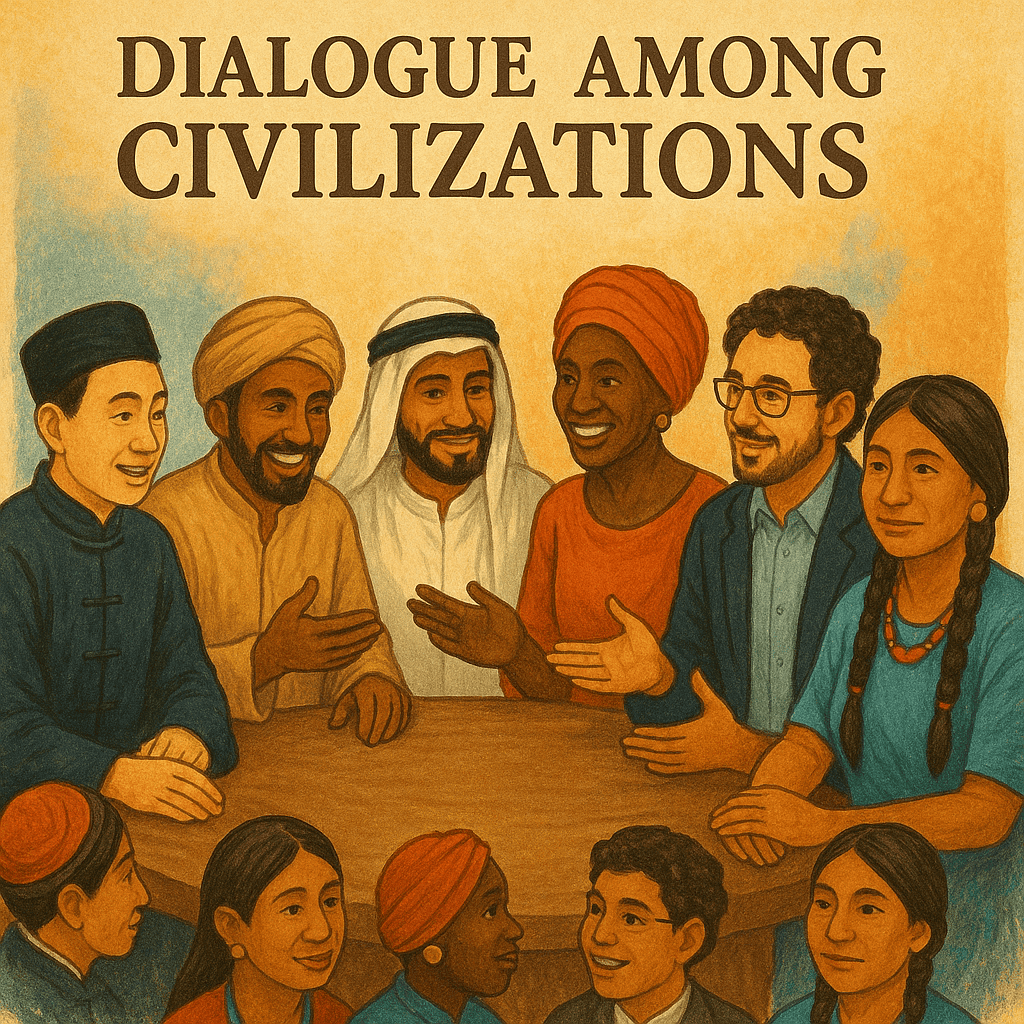International Day for Dialogue among Civilizations
In a world marked by political tensions, forced displacement, and persistent inequalities, dialogue among civilizations is not a luxury but an urgent necessity. For this reason, June 10 has been proclaimed by the United Nations General Assembly as the International Day for Dialogue among Civilizations. Resolution A/RES/78/286, adopted in 2024, invites Member States, international organizations, and civil society to promote mutual understanding, tolerance, and cooperation among cultures.
Dialogue that Transforms: When Encounters Lead to Progress
Far from being an abstract concept, dialogue among civilizations has proven throughout history its ability to generate concrete social improvements in societies open to exchange and collaboration. Below, we present a selection of seven historical cases that illustrate this idea. The mere remembrance of these examples helps us commemorate this day in a meaningful way:
- The Achaemenid Persian Empire (6th–4th centuries BCE)
Under the leadership of Cyrus the Great, religious freedom was guaranteed to conquered peoples. The most emblematic example was the return of the Jews from Babylonian exile, with permission to rebuild the Temple in Jerusalem. This was one of the earliest documented acts of institutional tolerance. - The House of Wisdom in Baghdad (9th century CE)
A center of translation and thought, it brought together Muslim, Jewish, and Christian scholars. Greek, Persian, and Indian works were translated, and advances in medicine, mathematics, and astronomy were made that would benefit Europe and the world centuries later. - Al-Andalus and the School of Translators of Toledo (8th–13th centuries CE)
For several centuries, Muslims, Jews, and Christians shared knowledge in a context of relative coexistence. The School of Translators of Toledo helped recover classical thought and laid the groundwork for the Renaissance. - The European Renaissance
Thanks to the recovery of classical knowledge preserved and transmitted by the Islamic world, Christian thinkers like Thomas Aquinas renewed European philosophy and education, integrating new paradigms of thought. - Jesuit Missions in China (16th–18th centuries CE)
Jesuits such as Matteo Ricci learned the Chinese language and culture, sharing European scientific knowledge with the imperial court. The exchange occurred in a climate of mutual respect and served as a model of cultural adaptation and inculturation. - Jesuit Reductions in South America
These organized autonomous Indigenous communities with access to education, healthcare, and music, in a culturally protective environment that resisted colonial exploitation. They represent a model of social promotion through cultural dialogue. - Parliament of the World’s Religions (Chicago, 1893)
Christianity, represented by various denominations, engaged in dialogue with Hindu, Buddhist, and other religious leaders. This event laid the foundations for contemporary religious pluralism.
A Day for Action
Let us not allow the International Day for Dialogue among Civilizations to become merely symbolic. It is a call to build bridges, to educate in empathy, and to recognize that diversity is a source of enrichment. The social improvements that have emerged from cultural encounters remind us that the future can only be shared if it is built on respect and dialogue. It is precisely through such efforts that we can foster social transformations that illuminate the world for centuries.
May this June 10 be, for all, an opportunity to look at one another with recognition—knowing that within dialogue lies the seed of a more just and reconciled humanity, one better equipped to overcome the polarizations that only lead to further cultural clashes and fewer advances—or even tragic setbacks—in human rights. A better world is worth the effort. And as history shows, when such dialogue is pursued with honesty and sincerity, the whole world benefits and grows.
Senior Lecturer and Coordinator of the Faith and Spirituality Area at Blanquerna-Ramon Llull University


